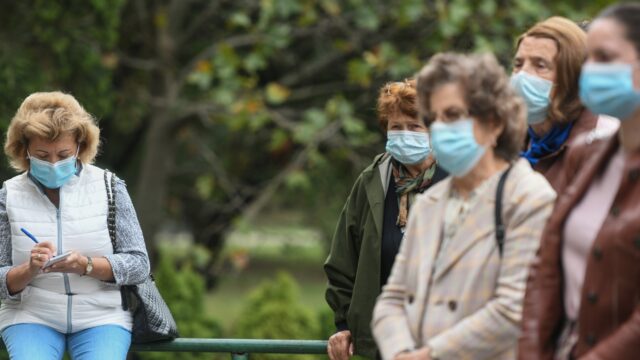What’s Public Health Got to Do With… Emergency Planning?

August 2021
By Jeanette Kowalik, PhD, MPH, MCHES, TFAH, Director of Policy Development
We are STILL in the greatest pandemic of our natural lives. The impact of COVID-19 has been profound because it forced us to prioritize what matters most, our health, our loved ones, and those in our communities that have the greatest need. The pandemic impact on older adults has been profound but if we look back, this has been the case for all hazards (e.g., natural disasters which will continue to increase from climate change, outbreaks in congregate settings, access to basic human needs and health care).
I developed a heightened awareness of the significance of investing in pandemic preparedness early in my public health career. At the City of Milwaukee Health Department (MHD), I was directly responsible for animal health and food safety for a multi-county project called the Urban Area Security Initiative. This was funded by the Department of Homeland Security in the wake of 9/11. One of the benefits of this initiative is that it forced public health professionals to develop relationships with people outside of our own silos. The field of public health was and still is accustomed to partnering with community organizations and health care institutions but not necessarily first responders including emergency management. I was thankful for this federal grant funding because it enabled me to truly develop these relationships. I continue to value these relationships and have carried them beyond my tenure at the MHD. I believe the reason for this was the fact that we experienced the aftermath of Hurricane Katrina. One may question, “how does Milwaukee, a northern, Great Lakes area city, have a role in a hurricane response that directly impacted the Gulf and New Orleans?” We were responsible for supporting the recovery efforts from afar. Milwaukee, and many other cities, served as rehoming sites for families and pets. I recall the horror of watching and learning how older adults were abandoned and left to fend for themselves in many cases. It made me reflect on my experience serving as my father’s caregiver. He was older and battling dementia- what would he have done if he lived in New Orleans? My reflections made me hyper vigilant to look out for the needs of older adults as well as others that did not have the means to safely evacuate or in other emergency situations—shelter in place with adequate food, water, and access to care and medication.
Moving beyond that time, we experienced H1N1 and mass vaccination clinics. I worked for a suburban health department in Milwaukee County during that pandemic. We were well funded and had the tax levy dollars to provide public health nursing visits to older adults in the community. I learned that this was rare as public health nursing was shifting to grant-funded projects and not a life-course approach. Having a well-funded health department with decades of knowledge and relationships with key organizations and respect of the community at large made it much easier for us to provide a solid pandemic response. That experience raised the bar for what was possible in my career.
Fast forward to the COVID-19 pandemic. Between 2018-2020, I served as the Commissioner of Health for my hometown of Milwaukee, WI. I will never forget the sleepless nights and fear of doing my best to protect my community residents, many of whom I had relationships with, so I knew their stories well. In March 2020, the initial cluster of COVID-19 cases was among middle-aged Black men in Milwaukee. This quickly spread to other areas of the county. Like many other communities across the country, COVID-19 decimated nursing homes and assisted living facilities, and severely impacted older adults who were exposed to the virus through caregivers and relatives. The need for swift and effective public health messaging and ensuring access to testing and basic human needs such as food, housing, and medications were paramount. Our ability to pivot and focus efforts on Black and Brown neighborhoods was largely due to our declaration of racism as a public health crisis the year prior. Additionally, I was thankful that we had a dedicated and talented PHEP team in Milwaukee that truly fought for our community to have what they needed to survive the pandemic.
Many local and state health departments are working to strengthen their relationships with departments of aging and Area Agencies on Aging during this pandemic and beyond. TFAH and The John A. Hartford Foundation’s investment in the Age Friendly Public Health Systems (AFPHS) initiative is timely and will serve to bolster PHEP initiatives for older adults. It is our desire and hope that more health departments and community partners embrace AFPHS now and understand that prioritizing this work will be added value for pandemic efforts for now and beyond. For more information on AFPHS, please visit: https://www.tfah.org/initiatives/age-friendly-public-health/
July Blog: What’s Health Got To Do With… Healthy Aging